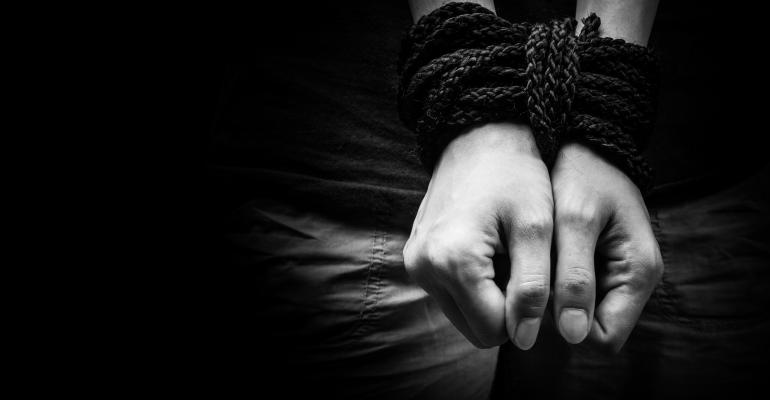The Super Bowl Anti-Sex Trafficking Committee—a coalition of more than 40 partner organizations and 100 community leaders—spent more than a year developing the plan. Its elements include raising awareness, educating the public, providing a response protocol, preventing and disrupting activity, and providing services to victims. The Carlson Family Foundation provided early funding for the plan and kicked off fundraising with a $75,000 challenge grant.
The Women’s Foundation of Minnesota, Ramsey County Attorney’s Office, Hennepin County, and the Super Bowl committee recently released a 26-page template based on procedures followed before and during the Super Bowl, along with the results. Measures included:
• Public awareness Thanks to the pro bono services of media professionals, the campaign stretched a modest $210,000 budget to generate 122 million impressions. An “It’s a Penalty” ad and video targeted tourists traveling to the event. Two media campaigns targeted to the perpetrators and the potential victims generated more than 100 million impressions. More than 140 stories appeared in media outlets.
• Training 10,000 Super Bowl volunteers, hotel employees, airport staff, bus and Uber drivers, law enforcement personnel, service providers, Mall of America employees, City of Minneapolis staff, Airbnb hosts, neighborhood organizations, emergency responders, hospital employees and faith communities were trained. A total of about 15,000 people learned how to spot and respond to suspected sex trafficking. The committee produced a training guide and webinar, and the Women’s Foundation of Minnesota supplied “spot the signs” wallet-size tip cards and adhesive phone pouches.
• Services response A committee from 11 nonprofit organizations that provide ongoing services to victims of sex trafficking expanded their hours and street outreach during the week of the game.
• Hotline Two hotlines for reporting suspected trafficking and for victims were publicized. The hotlines received more than 700 calls.
• Law enforcement Local police conducted 11 days of trafficking operations to attack demand and recover possible victims. Sting operations resulted in 127 arrests during the Super Bowl, the majority of them for felony charges.
• Business community engagement Local businesses were encouraged to participate through funding, in-kind donations, training, and encouraging employees to donate personal care items for victims or volunteer with service providers.
• Faith community engagement 100 churches were involved in efforts like providing meals and emergency shelters for the homeless, especially near the venue, and other volunteer activities.
The campaign generated nearly $1.5 million in contributions and donations from corporations, foundations, and local schools.
The plan, available from the Women’s Foundation of Minnesota, shares results from the Super Bowl initiative and provides recommendations for organizations interested in adopting the strategy, including how to create buy-in and implement each step. While not every measure in the Super Bowl plan will apply to other large-scale events, “the intent was to provide a plan that can serve as a guide to host cities for their events,” says Natalie Volin Lehr, Director of Corporate Affairs at Carlson and co-chair of the anti-sex trafficking business subcommittee.
The media routinely point to blockbuster events like the Super Bowl as magnets for sex-trafficking activity. But University of Minnesota research commissioned by theWomen's Foundation of Minnesota showed that, while ads for “adult services” spike during events like the Super Bowl, actual sex–trafficking activity is not necessarily more likely to occur than it is at other times such as conventions and holiday weekends. The scale of, and media interest in, such events, on the other hand, provides an opportunity to spotlight the practice.
So, while the Super Bowl Anti-Sex Trafficking Committee’s plan focused on preventing sex trafficking around the event, its goal was also to dispel misconceptions and educate the public about the potential for sex trafficking in general. “The Super Bowl provided a way to raise awareness that this is something that goes on 365 days a year,” says Volin Lehr.
Anti-sex trafficking initiatives have long been an important cause for Carlson. In 2004, it was the first North American company to sign ECPAT’s Tourism Code of Conduct to Protect Children. As part of its commitment, Carlson Wagonlit Travel (CWT) educates both its employees and travelers about trafficking and the sexual exploitation of children.
The Carlson Family Foundation also recently granted funds to ECPAT-USA to develop employee training for all travel management and meeting and event companies, and CWT employees are helping in its development. CWT also recently created a global anti-human trafficking task force to work across departments to raise internal and external awareness about the issue, enact new policies, and work with clients, suppliers, and NGO partners to eradicate human trafficking worldwide.





